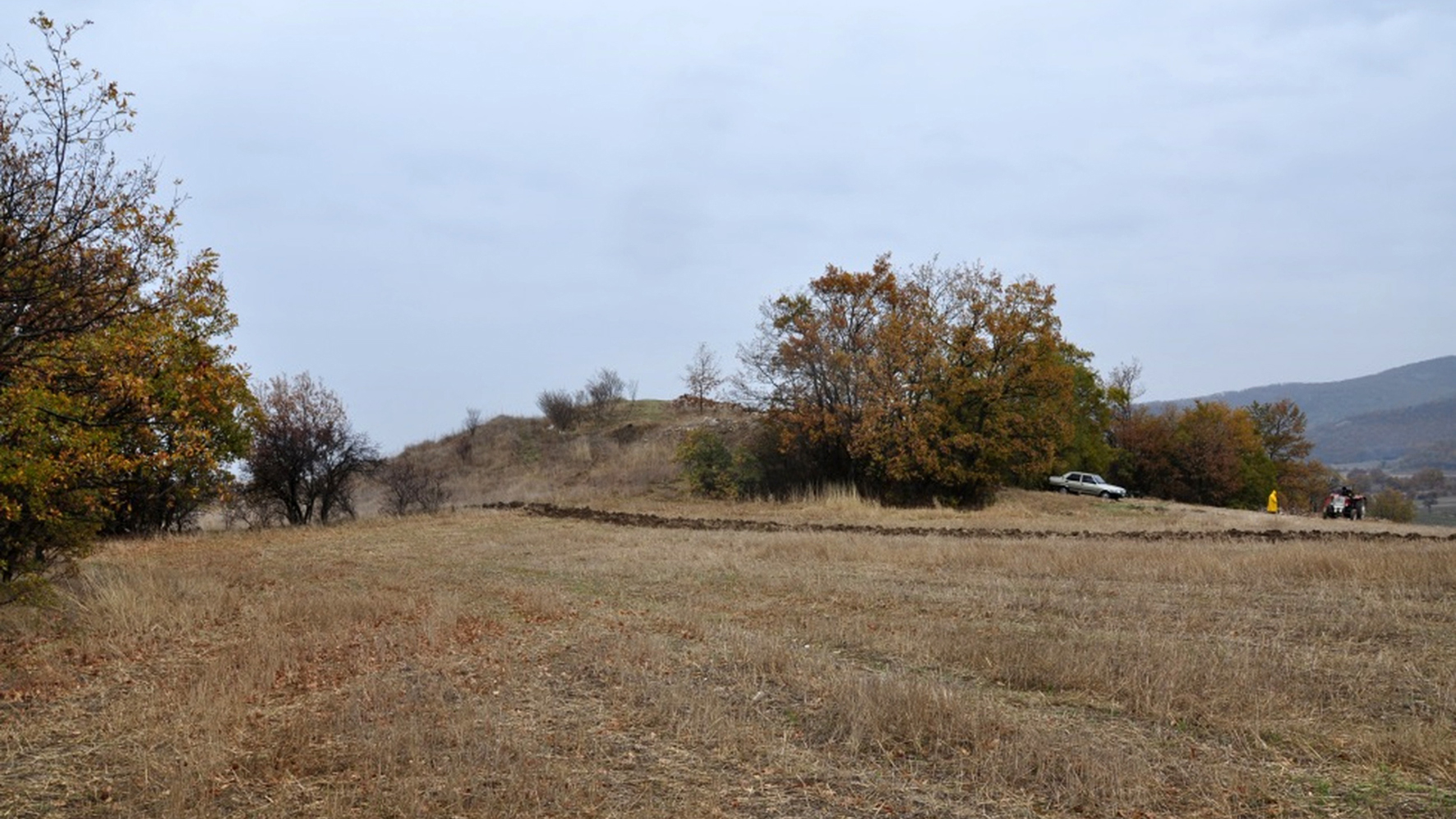ISIS May Face War-Crime Charges for Destruction of Historic Sites

As a combined Iraqi-Kurdish force fights its way into Mosul, the last major Iraqi city held by the Islamic State group (also known as Daesh, ISIS or ISIL), there have been reports that some ISIS fighters have chosen to surrender rather than fight to the death.
Photos released by Agence France-Presse (AFP) show the surrender of a few individuals, which the AFP called "suspected ISIL jihadists," near the ancient Assyrian city of Nimrud (which was dynamited and bulldozed by ISIS) and Mar Behnam (a Christian monastery that was heavily damaged and vandalized by ISIS). It's unknown if any of the individuals who surrendered are responsible for the destruction at the two historical sites.
Additional reports from multiple media outlets suggest that fighters (or alleged fighters) are surrendering in Mosul, where the Islamic State group has destroyed a number of historical sites, including the Tomb of Jonah, a site revered by both Muslims and Christians. Again, it is not known if any of those who surrendered took part in those acts. [See Photos of ISIS Destruction of Iraq Historical Sites]
Because international law forbids the destruction of heritage sites, those who surrendered could face charges for war crimes, experts say. The United Nations Educational, Scientific and Cultural Organization (UNESCO) lists areas as World Heritage Sites for having special cultural or physical significance.
"These destructions may amount to a war crime, and UNESCO will do everything in its power to document the damage so that these attacks do not go unpunished," said Irina Bokova, director-general of UNESCO, said in a statement released on Nov 25, after Nimrud was recaptured.
During the Islamic State group's campaign of destruction, the militant organization made several propaganda videos showing members destroying historical sites. Legal experts say those members may soon regret doing so.
"I'm confident that there will be trials for the destruction we've seen in the Middle East, and that the videos and photographs produced by ISIL to brag about their destruction will one day reappear in court as evidence against them," said Erin Thompson, a professor of art crime at the City University of New York.
Get the world’s most fascinating discoveries delivered straight to your inbox.
International Criminal Court
It would not be the first time someone has been brought to trial on war-crime charges of destroying heritage sites. Ahmad al-Faqi al-Mahdi, who was a member of an al-Qaida-affiliated terrorist group, was brought to trial for his help in destroying parts of Timbuktu in Mali. He pleaded guilty and was sentenced in September 2016 to nine years in prison.
However, as several legal experts noted, there are many challenges in investigating and prosecuting captured Islamic State group members. For instance, Iraq is not a party to the Rome Treaty, a treaty negotiated in Rome which allows citizens of a country that signed the treaty to be brought to the International Criminal Court, located in The Hague, Netherlands, to face war-crime charges. [See Photos of Amazing UNESCO World Heritage Sites]
This obstacle is not insurmountable, legal experts noted. The United Nations Security Council can invoke what are known as "Chapter 7" powers that will allow the International Criminal Court to investigate and prosecute a war crime, regardless of whether a country has signed the treaty, said Tess Davis, executive director of the Antiquities Coalition, a group of archaeologists, lawyers, former government officials and other experts who advocate for measures to stop illegal antiquities trading. Davis said it is unknown whether the Security Council will invoke those powers.
If the U.N. Security Council were to invoke Chapter 7 powers, it would have to allocate the financial resources and logistics necessary for the International Criminal Court to investigate the cases and bring the individuals facing charges to trial, Davis added.
Hague Convention
Iraq is a party to the 1954 Hague Convention that protects heritage sites in times of war. That stipulation could be used to bring Islamic State group members who destroyed historical sites to justice. However, the trial may have to be held before a local Iraqi court or a U.N. tribunal, rather than the International Criminal Court, experts told Live Science.
"There are a variety of international conventions that protect cultural property in times of armed conflict and domestic laws that proscribe trespassing and vandalism," said Rick St. Hilaire, a lawyer with Red Arch Cultural Heritage Law & Policy Research. In addition to the Hague Convention, parts of the Geneva Convention also prohibit the destruction of historical sites.
"The question is not so much what laws are in place; the important question is whether there is political will to enforce the laws and whether there are appropriate resources to catch the perpetrators and collect the evidence needed to [convict] them," St. Hilaire said.
"Both Syria and Iraq are member states of the 1954 Hague Convention, meaning that they are responsible to criminally prosecute violators after resolution of a conflict," said Leila Amineddoleh, a cultural heritage lawyer who is a partner in the firm Amineddoleh & Associates LLC.
Amineddoleh noted that the U.N. may want to see whether Iraq and Syria can prosecute these cases. "In the case that nations cannot properly address these issues, international bodies may pursue looters. The U.N. may find it appropriate to seek and prosecute individuals responsible for vandalism and looting as crimes against humanity, potentially in conjunction with the International Criminal Court," Amineddoleh told Live Science.
However, given the multitude of crimes committed by the Islamic State group and the resources needed to prosecute them, Amineddoleh said she doesn't expect many cases involving the destruction of heritage sites to go to trial.
"Although there is precedent for prosecuting vandals for heritage destruction, it is unlikely that many of these cases will be brought to court," Amineddoleh said. "The resources involved in trying them are too expensive, and the international community will probably devote courts to justice after violent crimes and genocide, not the protection of property."
Original article on Live Science.

Owen Jarus is a regular contributor to Live Science who writes about archaeology and humans' past. He has also written for The Independent (UK), The Canadian Press (CP) and The Associated Press (AP), among others. Owen has a bachelor of arts degree from the University of Toronto and a journalism degree from Ryerson University.
 Live Science Plus
Live Science Plus





